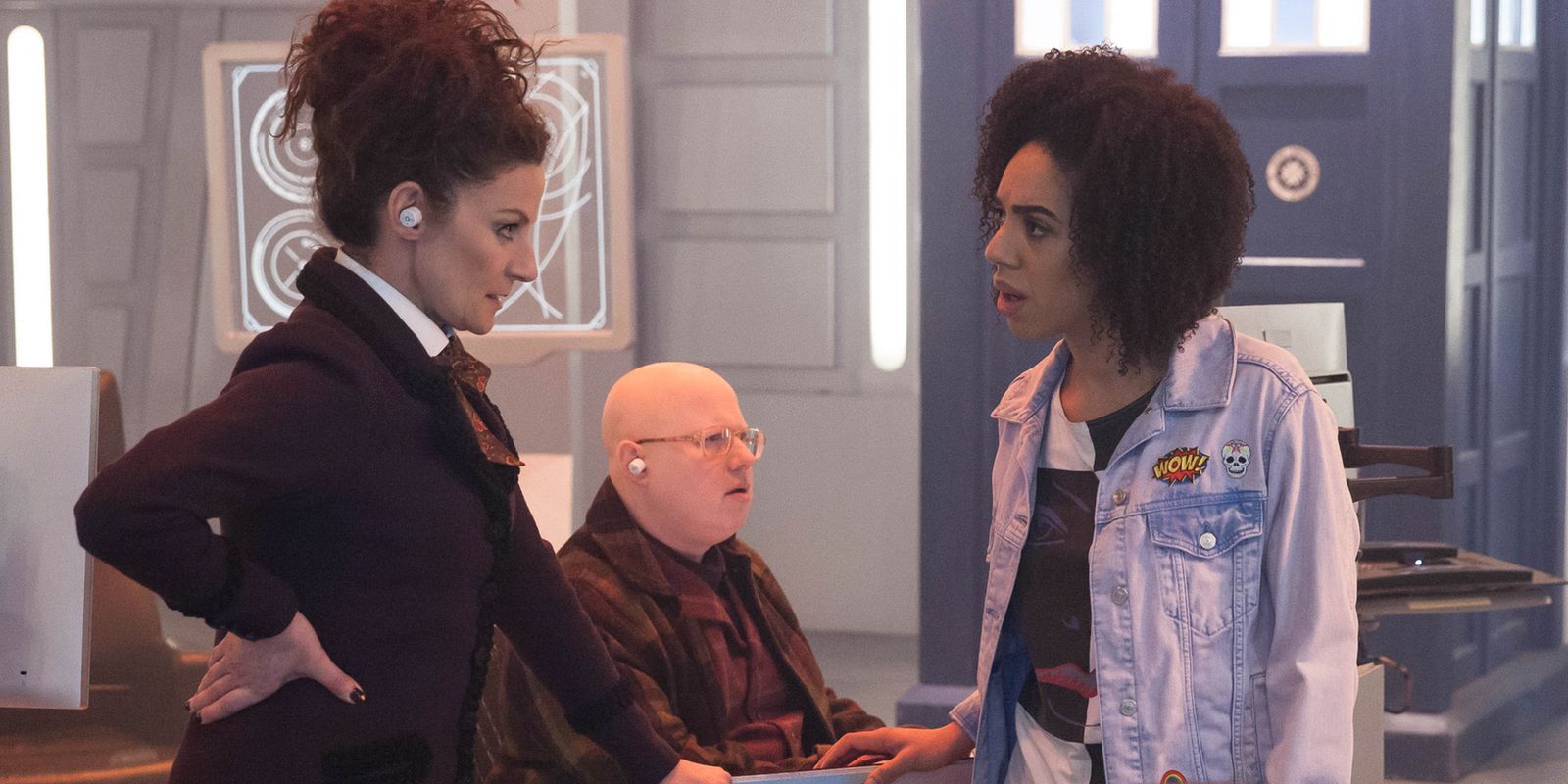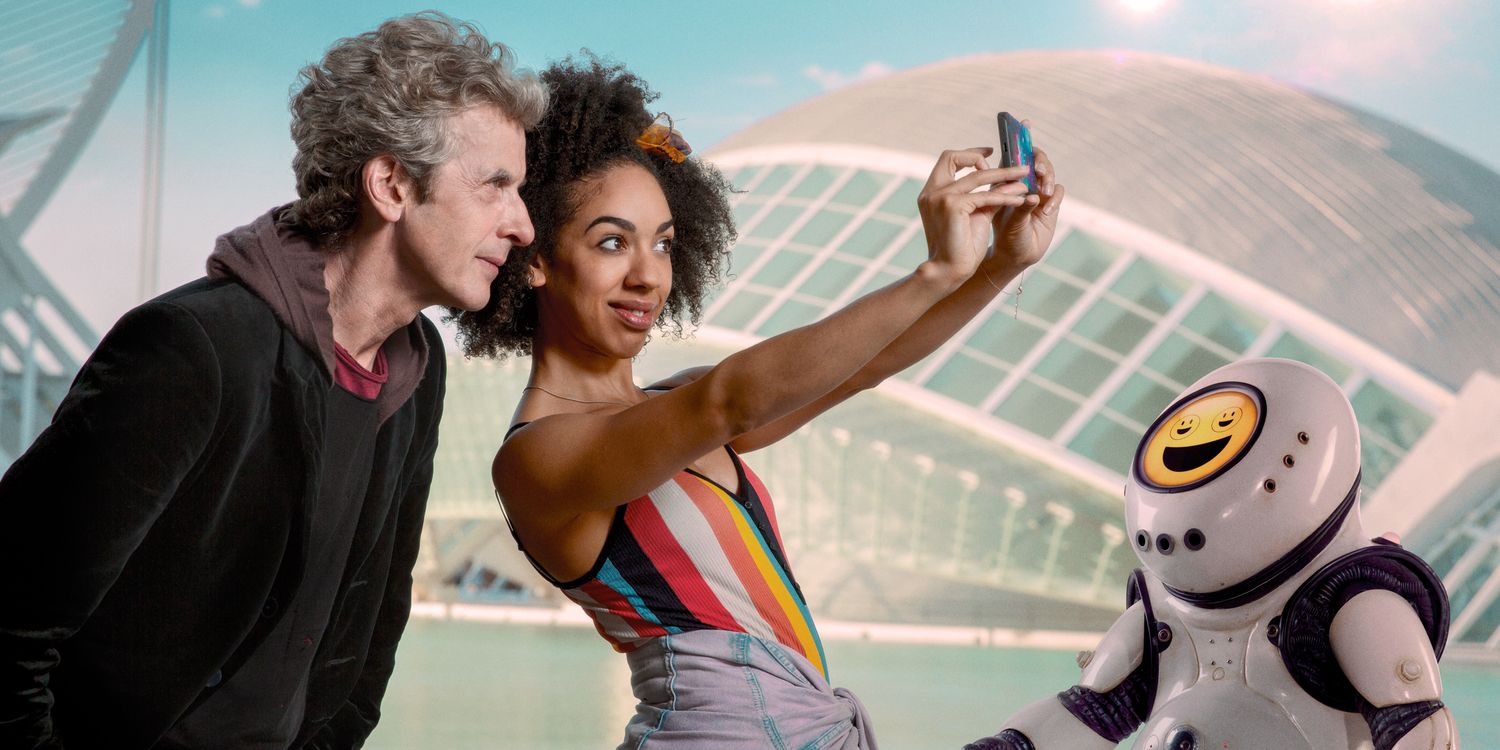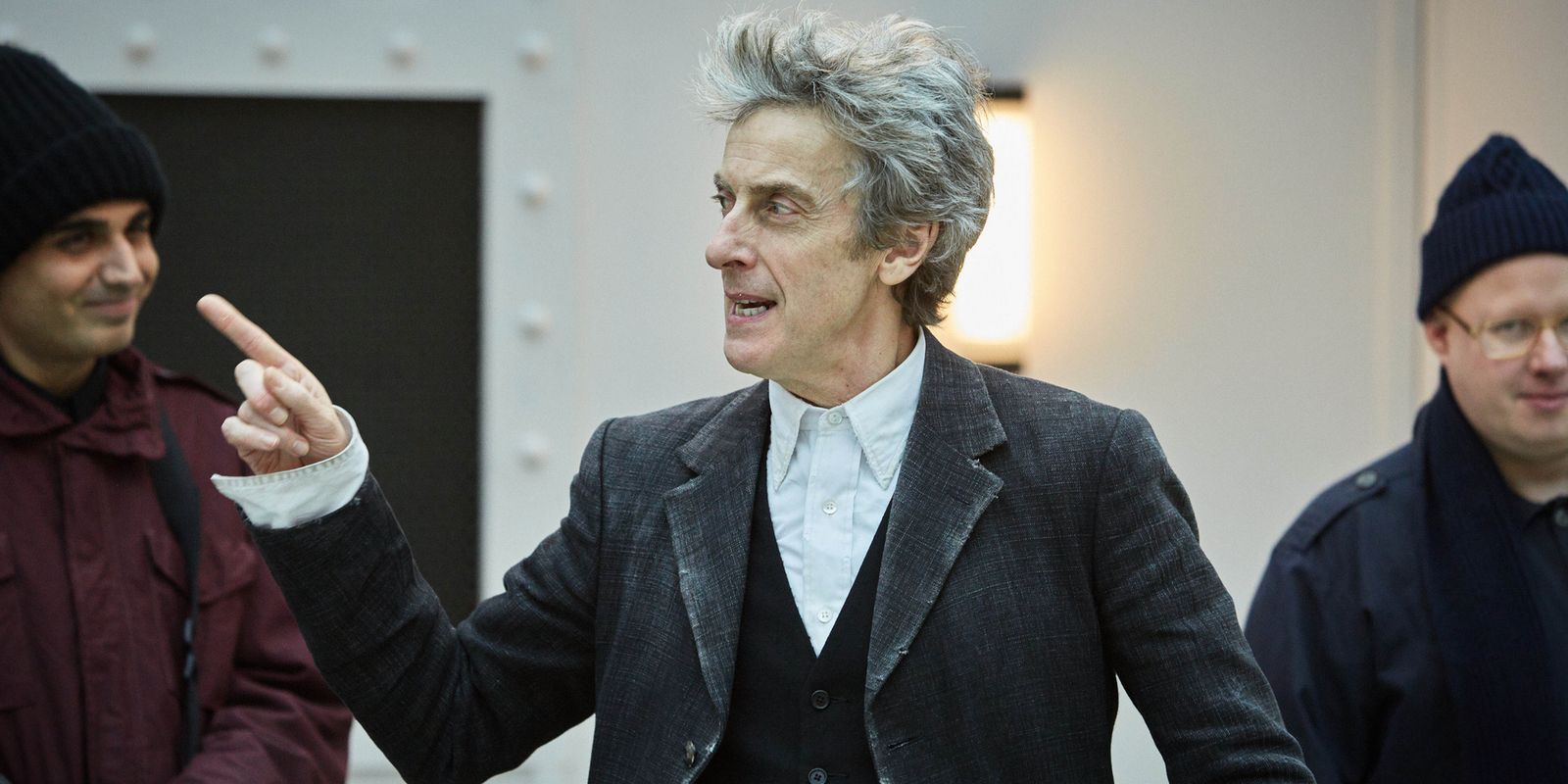Throughout season 10 there was a clear sense that showrunner Steven Moffat and the producers were looking to push Doctor Who forward. The Doctor's new companion, Bill (Pearl Mackie), was revealed to be gay, with her love-life being a central facet of her character's arc. This came on the heels of last season's introduction of Missy (Michelle Gomez), a female regeneration of the Master who, by proxy, made the notion of the Doctor becoming a woman by regeneration a canonical possibility. Moreover, for the two-part climax Missy teamed-up with John Simm's Master, creating a Master-crossover akin to the multi-Doctor specials of the series' history. Both on-screen and off, this season sought to re-exemplify the sense of adventure, whimsy and unpredictability Doctor Who is so well regarded for.
The first episode, "Pilot," introduces Bill as a potentially brilliant student whom the Doctor decides to mentor. Her love life drives the plot when she finds out a crush of hers is a liquid-based alien who's kidnapping humans, but it's her intellect and personality that catches the Doctor's attention. She's literally plucked out of obscurity to be privately tutored by the Time Lord, whose office is decorated with pictures and souvenirs of various adventures of his, along with the TARDIS. Bill invigorates and inspires the Doctor, becoming the catalyst for him returning to full-time space-adventuring.
Bill's confidence and amiable personality make her an interesting foil for the Doctor. New as she might be to inter-dimensional time travel, she retains her agency. The Doctor's calls often interrupt her regular cheery life, ruining her dates or gate-crashing her and her friends hanging out. "Knock Knock" may be a gothic horror about the dangers of trying to stave off death, but its most charming moments are Capaldi's greying old man trying to fit in with Bill's millenial friends until he can figure out what creeps him out about the mansion they're staying in as student digs. Bill isn't just the Doctor's companion, and it's her own nature that ultimately saves her.
Almost all the individual episodes are about some anachronism or another, making Capaldi's last tour one all about the old fighting for the young. The Doctor has always been a character who represents good, but here he's more stoic than ever, with a sense of resignation underpinning his monologues. If it's the last thing he does, it'll be teaching everyone - including his arch-nemesis the Master - that doing the right thing is always worthwhile and sometimes requires radical action. One instance sees him punch a man for being racist, while in another the Doctor gambles with his and an entire group's lives in a protest against corporations who've turned oxygen supply into a capitalist industry. Bill, then, is the embodiment of the future that's to be protected - an analogy that's passed onto a colony of survivors in the finale two-parter who're protected at all costs so they may start peaceful new lives.
Within all of this are some of Doctor Who's most palpably political moments. The Matrix-esque three-parter that forms the spine of the series, in which space monks turn the earth into a dystopia where rebellious thought is outlawed using a massive simulation, contains a small UN summit rife with ego-driven disagreement between the nations involved. The monks are overthrown when Bill's love for her deceased mother overloads their propaganda machines: widespread indoctrination being shattered by pure love is a message that has renewed relevance in light of the current political climate.
The rejection of English nationalism is brought back for "Empress of Mars," where a group of English soldiers from the late 1800s stranded on Mars are put in their place by the Doctor and some Ice Warriors after they try to conquer the red planet for Queen and country. Similarly, the use of a creepy old hospital filled with people in dire pain as they're converted to Cybermen for the season's climax – a process that ultimately numbs the pain rather than deals with it – had a particular horror to it with Trumpcare still in the air.
Even the parts of the season that were a little weaker remained compelling. The reveal that the vault the Doctor was watching over contained an imprisoned Missy wasn't quite the revelation anyone was hoping, but it worked because Michelle Gomez is wonderful in the role and the resulting storyline was so well delivered by she and Capaldi it didn't matter. Some of Moffat's most philosophical ideas are in this series, and there are times where not everything gels. The discussion of emotional intelligence in AI in 'Smile,' for instance, could've used a second episode or another draft to really come together. But the quality of the performances and the overall set-design episode-to-episode meant nothing was without charm and substance.
There's no denying that Steven Moffat can be a problematic writer. Both he and Russell T. Davies had their highs and lows as Doctor Who showrunners and Peter Capaldi had a lacklustre showing until now, none of his adventures really living up to his acting prowess. In this last season, Capaldi finally got the material he deserved and Moffat made sure his tenure will be remembered for the right reasons, all the while giving us Bill to show the kind of bright future Doctor Who could have ahead of it. Whoever takes over from here, they've got a lot to live up to.



